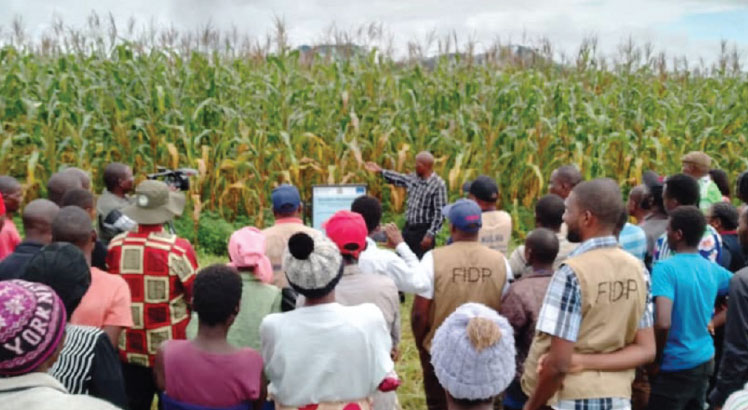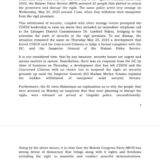The International Food Policy Research Institute (Ifpri) says jointly-operated farmer enterprises are an important vehicle for achieving the goals on agricultural productivity and as espoused in the Malawi 2063 development agenda.
In its May 2023 policy note titled ‘Can Cooperatives Commercialise Farming in Malawi?’, the institute observes that while agricultural cooperatives feature prominently in key development policies for Malawi, there is a low level of penetration of primary agricultural cooperatives in farming communities in Malawi.
Reads the policy note in part: “Government capacity to establish and support cooperatives is limited. Local primary agricultural cooperatives can be an instrument to better achieve economies of scale for smallholder farmers by pooling their land.
“However, such land consolidation efforts are not without cost, so government should invest in building the institutions to facilitate such land consolidation exercises.”
Ifpri says that private companies may find it unprofitable to initiate and drive these efforts, but will be more eager to engage with cooperatives that have concluded the consolidation with government oversight.
Government has placed primary agricultural cooperatives near the centre of its strategic vision to accelerate agricultural development and transform the economies of rural communities across the country.
In the Fifth Integrated Household Survey of 2019/20, however, under 10 percent of communities reported having a primary cooperative and few farmers reported using cooperatives to access inputs, to market their outputs, or to obtain veterinary services or extension advice.
Ifpri data shows that government has registered about 950 such cooperatives, although the accuracy of the register of cooperatives maintained by the Ministry of Trade and Industry is problematic. It observed that in terms of their development into professional commercial organisations, most agricultural cooperatives in Malawi are at an infant stage, dependent on external financial and technical support. Ifpri also said the cooperatives often have low management capacity and weak governance, and failing to provide clear or reliable benefits for their member-farmers through their commercial activities.
Mwapata Policy Institute executive director William Chadza is on record as saying establishing more cooperatives and enhancing diversification is key to attaining the Malawi 2063 pillar on agriculture and commercialisation.
He said: “It is important that within the challenges that we face, we should leverage on emerging opportunities to enhance the implementation of the vision to achieve the targets therein.”
The World Bank’s 2022 Poverty Assessment for Malawi shows that agriculture remains the country’s single most important sector, with 85 percent of the population of almost 20 million highly dependent on it, and a labour participation rate as high as 55 percent.
Women’s participation is even higher, at 60 percent. But it also shows that, as a sector, agriculture requires serious re-thinking to make it a catalyst for growth, rural transformation, and job creation.
The post Farmer cooperatives key to agriculture productivity first appeared on The Nation Online.
 Moni Malawi
Moni Malawi 

